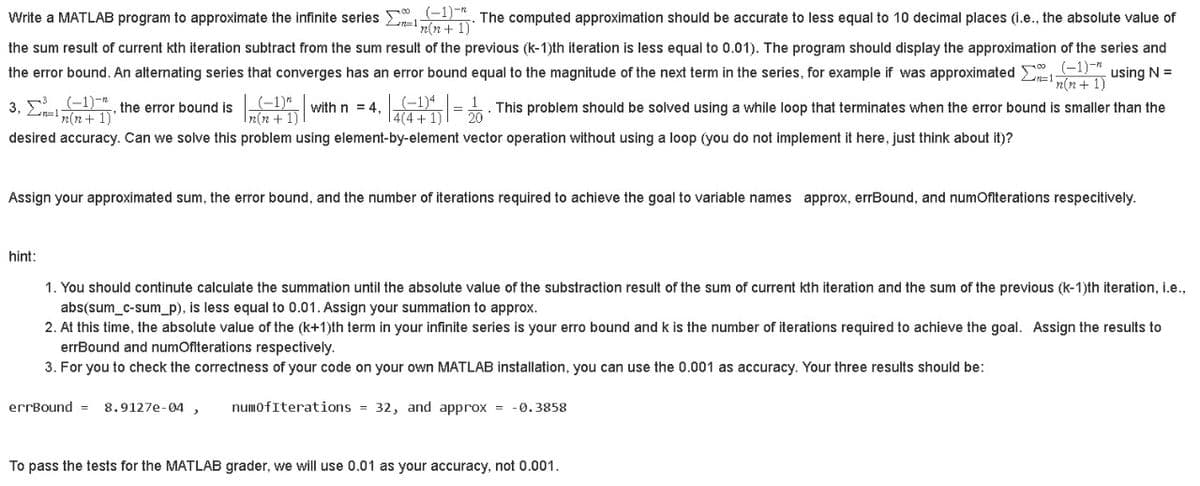+1) the sum result of current kth iteration subtract from the sum result of the previous (k-1)th iteration is less equal to 0.01). The program should display the approximation of the series and the error bound. An alternating series that converges has an error bound equal to the magnitude of the next term in the series, for example if was
Max Function
Statistical function is of many categories. One of them is a MAX function. The MAX function returns the largest value from the list of arguments passed to it. MAX function always ignores the empty cells when performing the calculation.
Power Function
A power function is a type of single-term function. Its definition states that it is a variable containing a base value raised to a constant value acting as an exponent. This variable may also have a coefficient. For instance, the area of a circle can be given as:
The computed approximation should be accurate to less equal to 10 decimal places (i.e., the absolute value of nin+1) the sum result of current kth iteration subtract from the sum result of the previous (k-1)th iteration is less equal to 0.01). The program should display the approximation of the series and the error bound. An alternating series that converges has an error bound equal to the magnitude of the next term in the series, for example if was approximated (-1)-1 nin+1) using N = 3, (-1)-*, the error bound is (-1)" with n = 4, nin+1) .

Trending now
This is a popular solution!
Step by step
Solved in 4 steps with 3 images









